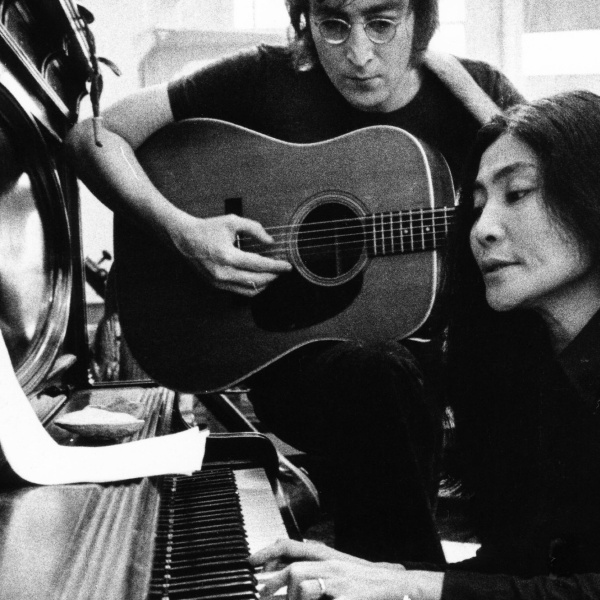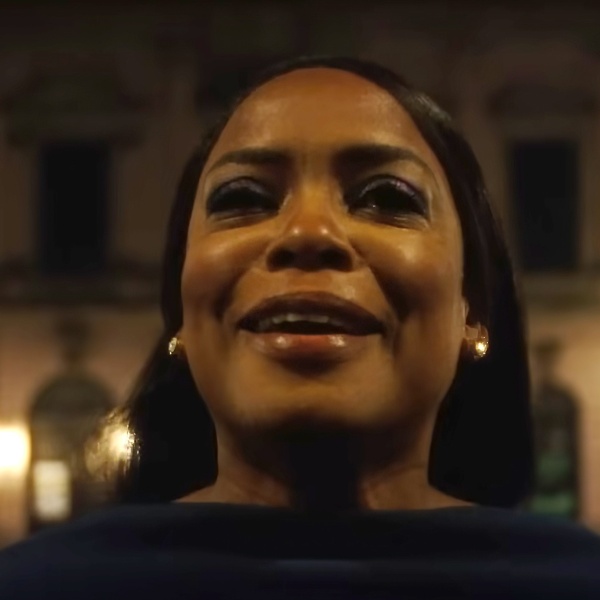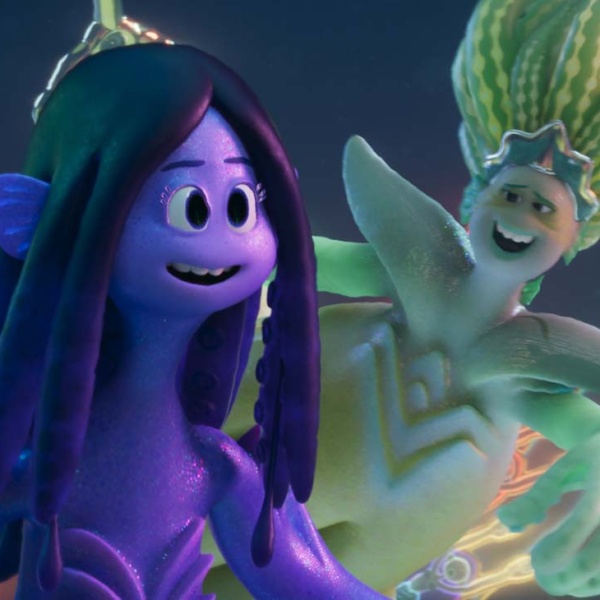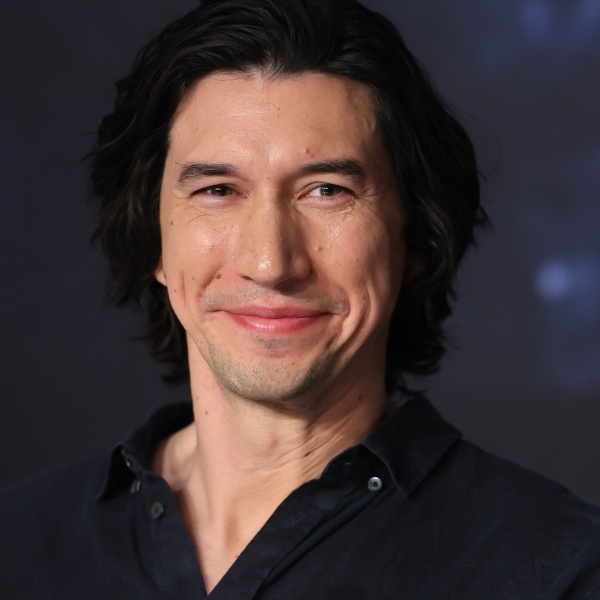Christopher Nolan is like “a timber wolf,” said Robert Downey Jr., Nolan’s star in “Oppenheimer.” And in a funny yet sincere speech in which Downey teased and feted Nolan at Sundance’s opening night awards gala, he hailed Nolan “as independent a voice as ever existed in cinema while telling stories that remind us of the interdependency of the human experience.”
“Now that last line was so searingly sophisticated, I’m just going to let it hang there for a second,” Downey joked. “Damn, that just came to me!”
Downey said Nolan can accomplish this because his partner Emma Thomas “blocks for him,” challenges him, and reinforces his every decision. And in presenting Nolan Sundance‘s first-ever Trailblazer Award on January 18, the first night of the 40th edition of the festival in Park City, he was in awe that he could deliver a film ahead of schedule and under budget (“basically Hollywood backwards”) and with “nary a drop of creative compromise.”
“There is a monastic and devotional energy,” Downey said of being on Nolan’s set. “It’s like a hundred people making a watch. I’ve never experienced anything like it.”
But he also held up a photo of Nolan and his brother Jonathan at Sundance in 2001 ahead of the premiere for “Memento” “prior to any formal press training.” In the picture, you could see the two chugging from bottles covering their faces, and Downey joked the blurry photo came from Roger Ebert’s “brand new Motorola Razr” phone. Now, though, Downey said Nolan’s burden is that “he has become recognizable on the street, and he recoils, as if from a hot flame.”

Downey concluded by sharing an intimate moment he had with Nolan, in which Nolan came in close and said, “I’m beginning to wonder, is it possible, Death by Schmoozing?”
Nolan, upon taking the stage to close out the evening, was charming but also inspiring, giving wisdom to this year’s crop of Sundance filmmakers about the reason we come to the festival in the first place. He said that while most know of “Memento’s” success out of the festival, he originally screened it for independent buyers all at once, only to watch everyone pass. At Sundance, he found an audience for the film.
“It’s the audience, it’s the two weeks or so in which independent filmmaking doesn’t just mean a business model,” Nolan said. “It means aspirations for filmmakers, directors, writers, actors. You’re treated as artists, you’re given authorship in what you’ve done, and it tells you what you’re supposed to be doing, what your real purpose is.”
He went a step further and said that after selling “Oppenheimer” to Universal, he got a call from Comcast CEO Brian Roberts, Universal’s parent company, who told him he happened to be at that screening of “Memento” all those years ago.
“It’s a quarter of a century later, and I’m still being fucking discovered by Sundance,” Nolan said.
Nolan did, however, push back on the idea that he’s as independent as any in the history of cinema.
“I don’t think I’ve ever been an independent filmmaker. Painters can be independent. Poets can be independent,” he said, but so many people are crucially important to a film finding an audience that “the very notion of complete independence starts to wither away.”
Nolan was the last of five honorees at Sundance’s opening night gala and fundraiser in a star-studded night that also recognized Kristen Stewart, Maite Alberdi, Celine Song, and journalist and producer Pat Mitchell.
Stewart has had more than 10 films at the festival, including as both an actress and a director, and including this year’s “Love Lies Bleeding” and “Love Me.” She received the Visionary Award, and the award was presented to her by her “Adventureland” co-star Jesse Eisenberg, who directed his sophomore feature, “A Real Pain,” premiering this weekend at Sundance.

Eisenberg recalled a moment from “Adventureland” in which he said he was “blown away” by the subtlety and intensity contained within a tiny gesture and line, talking about the “painstaking feeling” that she brings to everything she does. Stewart returned the favor, saying, “I adore you and your work and your whole life, just endlessly and lifelong.”
But Stewart channeled her own independent spirit by saying that it’s not a miracle that movies get made, but because “someone crazy forced it. They were like it must happen and I will not take no for an answer.”
“I’m just so invigorated by this place and the acknowledgment to do what I need to do. Thank you for lighting a fire under my ass and letting me know my whole life, implicitly and explicitly that it’s possible,” she said. “Sundance is the fucking shit. I love being here. Thank you so much.”
Alberdi, who premiered “The Mole Agent” and last year’s “The Eternal Memory” at Sundance, received the Vanguard Award for Non-Fiction as presented to her by Jodie Foster. Alberdi says she constantly hears questions of, “Are your films real or not real?” But never at Sundance. Here, they’re understood as films. ” but never at Sundance. Here, they’re understood as films.
“I have always felt that I had a limited career in this territory, but Sundance has been the gateway to the North American audience,” she said. “It is very emotional to come full circle and receive this award a year after we premiered in Park City.”

Song, the director of last year’s “Past Lives,” received the Vanguard Award for Fiction as presented by the film’s producer Christine Vachon. Song thanked Vachon and recalled some advice she gave on the second day of filming when she was “completely terrified and uncertain.”
“Christine said to me, ‘You already know everything you need to know about the movie you’re making, we’re all just here to download what you know so we can support you,’” Song said. “She said this to me in a way that was so convincing, it made me believe in it completely, and I never questioned it again.”
Finally, for Mitchell, Sundance founder Robert Redford was not in attendance, but via his daughter Amy Redford, he gave a lengthy statement about Mitchell and his “true and trusted friendship” with her that has extended 30 years. Mitchell served as the chair of Sundance’s board of trustees for seven years, and Redford said in his statement she on Sundance “made an immediate impact, which continues to this day.”
“She is a force for good,” Redford said in his statement.
Mitchell received the Vanguard Award for Philanthropy, and she championed the “collective vanguard” of everyone in the room at the DeJoria Center who make up the Sundance community.
“I can hope that we will be the ones to combat misinformation and polarization,” she said. “We will be the ones who will call for an end to war and violence, and we must be the ones who lead us forward to a climate-safe world for everyone.”





